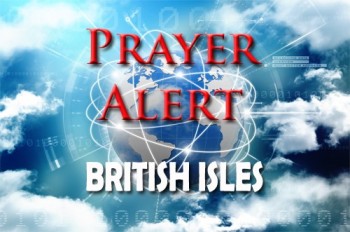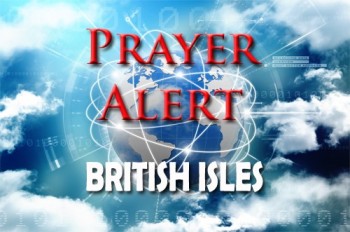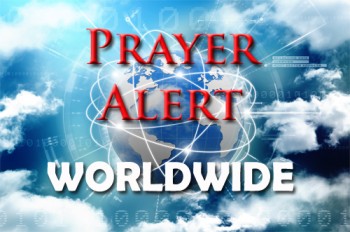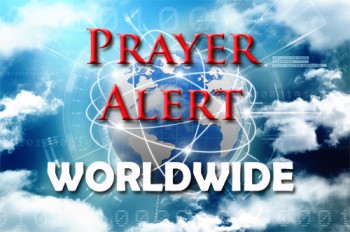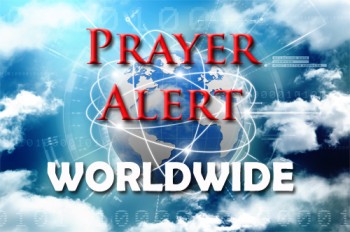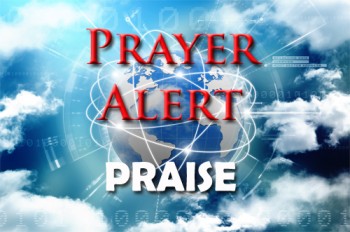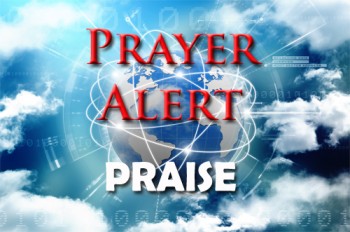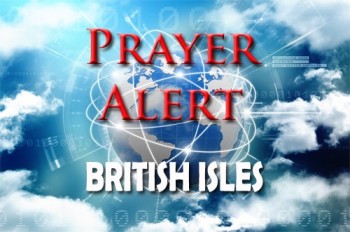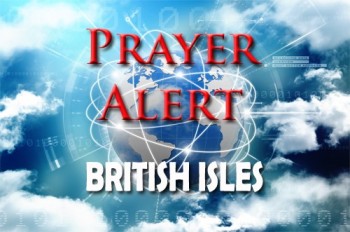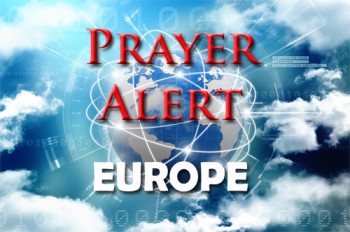Displaying items by tag: Religion
Coronavirus prayer guide
It can be difficult to know where to start when praying for a crisis as large as coronavirus. So Tearfund have created a simple helpful prayer guide for intercessors to use individually, with a group or with the church. To download this perceptive resource for praying for situations close to home and around the world click the ‘More’ button.
Faith groups’ role in social cohesion undervalued
Faith and non-religious belief groups’ positive contribution to social cohesion deserves greater recognition and should have more influence on cohesion policy in the United Kingdom, according to a report commissioned by the British Academy and the Faith and Belief Forum. The report draws on practical case studies from across the UK, including an interfaith programme by the West London Synagogue to promote positive Jewish-Muslim relations locally, a mosque that teaches English to speakers of other languages, a Catholic homelessness charity, and a Christian initiative to tackle knife crime. Faith is too often thought of as concerning ‘others’ and subtly racialised as the preserve of ethnic minorities in a secular society. Although faith and belief can be a source of division, many faith groups play a key role in uniting groups, and their contributions need to be valued and recognised.
Saudi Arabia: Hajj - 29 to 31 July
The Hajj is one of the five pillars of Islam that all Muslims must perform at least once in their lifetime if they are able. On the Hajj Muslims seek the forgiveness of sins and to deepen their allegiance to Allah. In Luke 7, Jesus said to a sinful woman, ‘Your sins are forgiven: your faith has saved you; go in peace’. Jesus has the authority and power to forgive all of our sins through his atoning sacrifice on the cross and His resurrection. 1.8 billion Muslims in the world today reject Jesus as a Saviour. Instead, they go on the Hajj pilgrimage to Mecca in Saudi Arabia in order to earn forgiveness of sins from Allah. A phrase used in most Arabic conversations is ‘al-ḥamdu li-llāh’ - literally, ‘Praise be to God’. Pray for people to truly know God and praise Him when they use this phrase. See also
Democratic Republic of the Congo: turmoil, violence, pandemic
2019 saw Felix Tshisekedi elected president in disputed elections marred by violence. Ethnic tensions between Lendu and Mema saw 1,000+ deaths and another 1,300+ abducted or kidnapped, while the Ebola crisis took more lives. 2019 is being violently repeated in 2020. On 22 July authorities started cracking down on peaceful critics, journalists, and political party members using pandemic emergency measures as a pretext to curb political protests(see). Since 13 July hundreds have been demonstrating for the dissolution of parliament. This has been organised by the Catholic Church (see). Authorities are attempting to contain several health crises: coronavirus, the largest measles outbreak in the world, and two Ebola epidemics (see). Also rural violence is escalating: a Christian worker writes, ‘The route from Aru to Bunia is still not safe. If people want to reach Bunia they are accompanied by soldiers. But those who were killed last time were accompanied by soldiers who were also killed.’
Christians neglected in aid distribution
Imagine you’re a Christian family in a Hindu village. It’s very likely neighbours are socially boycotting you. Even when there isn't a lockdown, you’re not allowed to buy from the local shop or draw water from the local well. You get food and daily necessities from nearby Christians or go to villages where the opposition isn’t so strong. But now your village is in lockdown. You’ve lost your income. Aid is being distributed to the local shop or the local village committee and they won’t give you the food, not even when you have a food ration coupon. The chances are that police won’t listen to Christian complaints and even accuse you of trying to convert Hindus or even ‘Don’t follow Jesus. Just do what everybody else does.’ Please pray for God to soften the hearts of those denying essential food and aid to Christians.
Drive-in church, pre-booking pews
Churches are taking innovative steps to keep congregations safe as public worship restarts. All Saints Church in Crowborough welcomed 200+ people to its drive-in church service in the Sussex countryside. St Barnabas held their drive-in service in Swanmore village hall car park and parishioners wound down car windows to join the worship. Waterlooville’s St George's welcomes pre-booked worshippers by ticking their names off at the door for tracking and tracing, directing them to hand sanitisers and a seat two metres away from others. A worshipper said, ‘It has replenished my soul to be here today. I just sat there and wept.’ In front of St George’s altar is a webcam and laptop for livestreaming the service.
Children build bridges between Christians and Jews
In response to US parents not knowing what to do with their children who had been sent home from closed schools, Verses for Zion (VfZ)was born, a biblically-rooted project connecting Christian children to Israel, as an opportunity to engage them in a multigenerational project with parents and grandparents. Now, as summer is starting and schools that had opened are closing again, it offers parents a way to add meaning and substance to their children's extended vacation. VfZ, the brainchild of an Orthodox Israeli Jew and an evangelical Christian pastor in Texas, aims to give children the opportunity to learn more about God, His Word and His people. One mother said, ‘It entrenches children’s faith and deepens their understanding of God, the Bible and how that relates to us today through Israel.’
Archbishop: 'Learn afresh how to share the gospel'
The Archbishop of York, Stephen Cottrell, called on the Church of England to ‘learn afresh how to share the gospel in the world’. He said the Church’s voice remains over-dominated by people who are usually white, male, with a certain education, and over 60. He is engaging in wide-ranging discussion with people from across the church, and intends to draw in and listen to the voices of younger Christians and those whose voices are not usually so easily heard in Church. He said we are going to have to learn again how to love one another, love the world, and love God so that we can be the place where God is revealed, adding, ‘We have allowed ourselves to become tribal and divided, with secondary things obscuring our belonging to each other. The Holy Spirit reveals Christ in us; and through us may we learn afresh how to share the gospel in the world.’
Children's book about hope, not darkness
A children's illustrator and an author started a conversation about death, after being told the subject was ‘off the table’. ‘Where is Uncle Al?’ is for 4- to 7-year-olds. Author Eva Hubs and artist Sarah Harrison published the book after being encouraged by health professionals. The book is about hope not darkness, from a Christian and Buddhist perspective. It centres on Lily, who hears about Uncle Al but is given different answers when she asks where he is. Sarah says we pretend to know about death and stop exploring it, so Lily asks adults questions that they find difficult to answer. A childhood bereavement charity comments that stories play an important role in helping children make sense of death. The book’s pictures and words feed children's imaginations, making them feel less isolated, when they are very alone with their grief.
Europe: simple church
The pandemic has been disruptive for centralised service-based models of congregation. However, churches based on small groups are less affected by the crisis. With self-organisation in simple, organic, house church movements, there is no dependence on church buildings and pastors - making these groups more financially resilient. Their resources are available for mercy ministry and mission in discipleship movements. In the last twenty years, we have seen a gradual paradigm shift in the church on what it means to follow Jesus. The emphasis is no longer on church membership or a program you follow, but on a daily life led by God's Spirit in connection with others, both inside and outside church walls. The church is seen as an organic network. This requires abandoning control and systems, and discerning with other Christians how and where God is at work. Coronavirus can help the church become such a movement, consisting of people who live and act in dependence on Christ: see https://mailchi.mp/joelnews/jni-1177?e=10cd13704c
